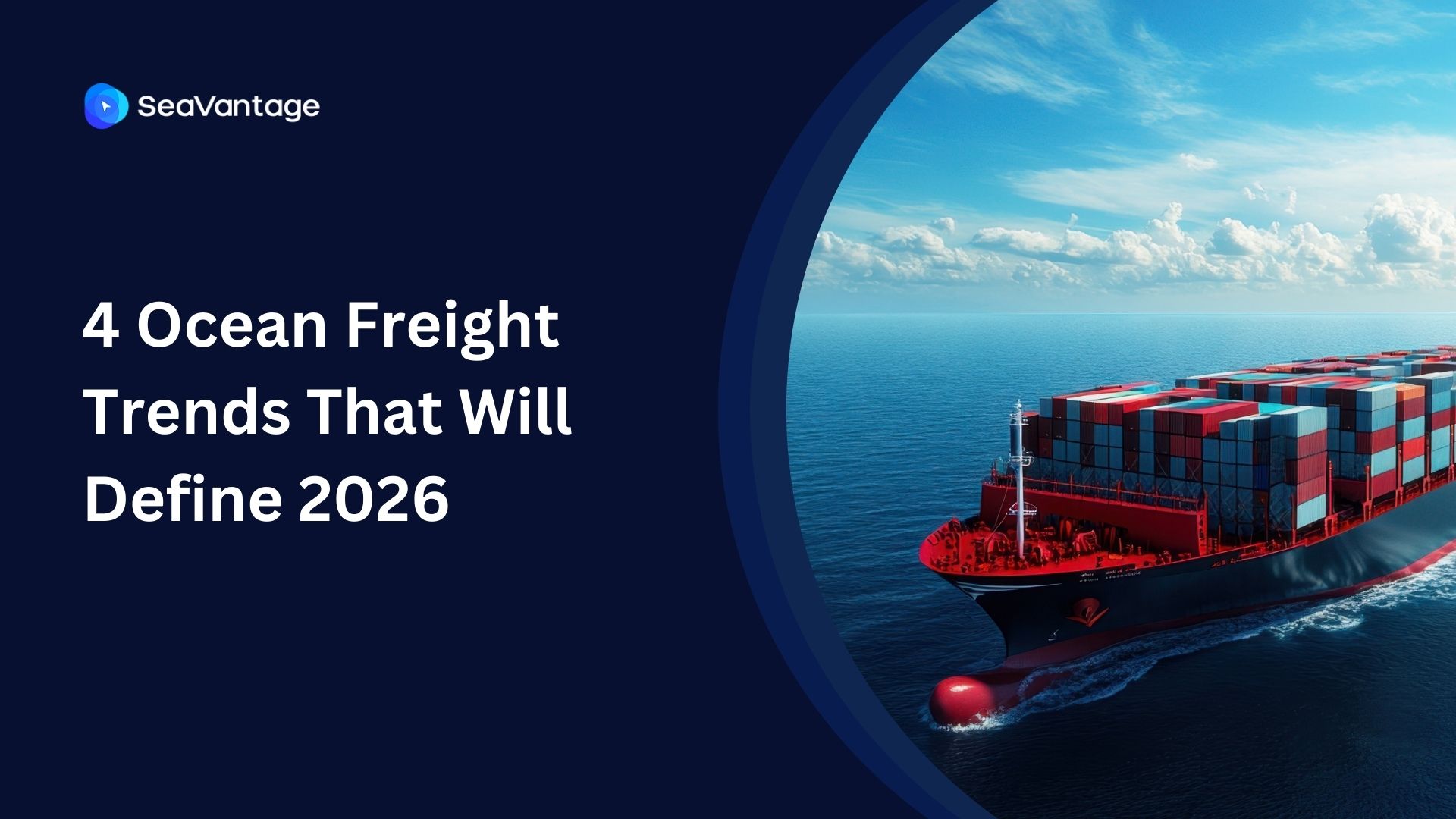5 Key Takeaways from the CMA CGM-Freightliner Acquisition
.jpg)
The logistics world is buzzing with the news of a major strategic move. Shipping giant CMA CGM has announced its acquisition of Freightliner UK, a leading rail logistics company. This deal is set to reshape the landscape of intermodal transport in the United Kingdom and across Europe.
So what does this acquisition really mean for the industry and for customers? Let's break down the five key takeaways from this landmark agreement.
1. A Powerhouse for Intermodal Connectivity
At its core, this acquisition is about creating a more seamless and integrated logistics network. CMA CGM, a global leader in sea transport, is now directly combining its strength with Freightliner's extensive rail and road capabilities in the UK.
This vertical integration allows for powerful synergies. It enables the efficient connection of sea, rail, and road transport, providing customers with true end-to-end solutions. According to a 2025 report by Transport & Logistics Intelligence, integrated logistics offerings like this can reduce transit times by up to 15% and significantly improve supply chain reliability. By controlling more of the journey, CMA CGM can offer more efficient and resilient services, linking major UK ports with the hinterland more effectively than ever before.
2. A Bold Step Towards Decarbonization
Sustainability is no longer just a buzzword; it's a business imperative. This acquisition marks a significant commitment by CMA CGM to its decarbonization goals. Rail freight is a cornerstone of sustainable logistics.
Shifting cargo from road to rail drastically reduces carbon emissions. A 2025 European Environment Agency study highlights that rail freight emits up to 75% less CO2 than road freight per tonne kilometer. By integrating Freightliner's network, CMA CGM is not just expanding its business, it is actively building a lower carbon transport offering. This move supports both the environmental goals of its customers and the wider global effort to decarbonize trade.
3. Strategic Deepening in the UK Market
The United Kingdom remains a vital and strategic market for global trade. With this acquisition, CMA CGM is planting its flag firmly in the UK's logistics soil. The company already has a substantial presence, but taking over a leading rail operator like Freightliner is a game changer.
This move strengthens CMA CGM’s presence in a key market and enhances its ability to serve local and international clients operating in the UK. It signals confidence in the UK economy and its future as a major logistics hub. As noted by Lloyd's List, this follows the group's strategy of strengthening its intermodal presence across Europe, making it a formidable player in the region.
4. Enhancing End-to-End Customer Solutions
The modern supply chain demands simplicity and visibility. Shippers increasingly prefer to work with a single partner who can manage the entire logistics process, from factory to final destination.
This acquisition is a direct response to that demand. By combining maritime shipping with inland rail and road logistics, CMA CGM can offer a single point of contact for complex supply chain needs. This integration leads to better coordination, improved visibility, and more reliable service for customers. It’s part of a wider industry trend where major carriers are evolving into integrated logistics providers, aiming to deliver enhanced value and a more seamless customer experience.
Discover the importance of visibility in our solution about Real-Time Container Tracking.
5. Freightliner to Maintain Operational Independence
While now part of the CMA CGM Group, Freightliner UK will continue to operate as a standalone business. This is a crucial takeaway for the market and existing Freightliner customers.
CMA CGM has confirmed that Freightliner will maintain its multi user and multi customer business model. This ensures continuity of service and preserves the trusted Freightliner brand. The existing management and operational teams, with their deep industry expertise, will remain in place. This smart approach allows Freightliner to benefit from the global network and resources of CMA CGM while continuing to provide the high quality, independent service its customers rely on.
Frequently Asked Questions (FAQs)
Why did CMA CGM acquire Freightliner UK?
The primary reason is to strengthen its end-to-end logistics and intermodal services in the UK. This move allows CMA CGM to offer a seamless connection between its global maritime shipping routes and an extensive inland rail network, enhancing efficiency and sustainability.
What will happen to existing Freightliner customers?
CMA CGM has stated that Freightliner will continue to operate as a separate entity with its existing management. It will maintain its multi customer business model, so current customers should experience continuity of service and can expect the same level of support.
Does this acquisition only affect the UK?
While the acquisition is specifically of Freightliner UK, it strengthens CMA CGM's overall logistics network in Europe. It complements the group's other assets on the continent and reinforces its position as a leading integrated transport provider in the region.
When is the deal expected to be finalized?
The acquisition is subject to approval by the relevant regulatory authorities. The deal is expected to close in early 2026, pending these approvals.
The Road and Rail Ahead
CMA CGM's acquisition of Freightliner UK is more than just a business transaction. It is a strategic move that reflects the future of logistics: integrated, sustainable, and customer focused. This deal will undoubtedly create new opportunities and drive innovation, strengthening the critical link between global shipping and inland transport for years to come.
2025년 9월, 주요 글로벌 항만에서 어떤 운송사가 가장 긴 선박 체류 시간을 기록했는지 확인해보세요. 트렌드를 비교하고, 지연을 파악하며, 전체 항만 데이터를 통해 운송 전략을 최적화할 수 있습니다.
2025년 8월, 주요 글로벌 항만에서 어떤 운송사가 가장 긴 선박 체류 시간을 기록했는지 확인해보세요. 트렌드를 비교하고, 지연을 파악하며, 전체 항만 데이터를 통해 운송 전략을 최적화할 수 있습니다.
2025년 7월, 주요 글로벌 항만에서 어떤 운송사가 가장 긴 선박 체류 시간을 기록했는지 확인해보세요. 트렌드를 비교하고, 지연을 파악하며, 전체 항만 데이터를 통해 운송 전략을 최적화할 수 있습니다.
Explore how tariffs, blank sailings, port congestion, and canal disruptions reshaped global ocean shipping in 2025 — and what supply chain leaders must do next.
Is your ocean supply chain ready for 2026? Discover 4 critical trends, from weather disruptions to strategic booking, and how to adapt.
iscover the 4 critical ocean freight trends for 2026, from the Red Sea reopening and fleet overcapacity to shifting global trade maps. Prepare your supply chain now.



.svg)







.png)